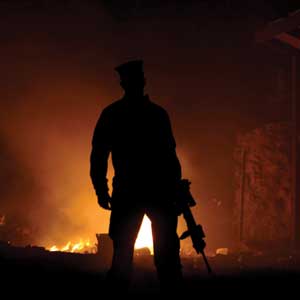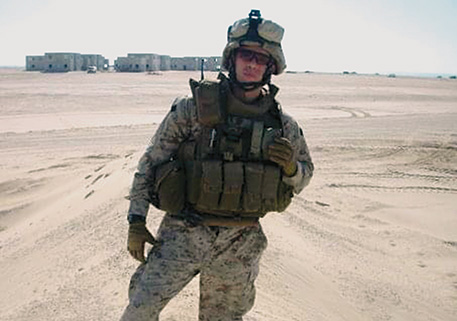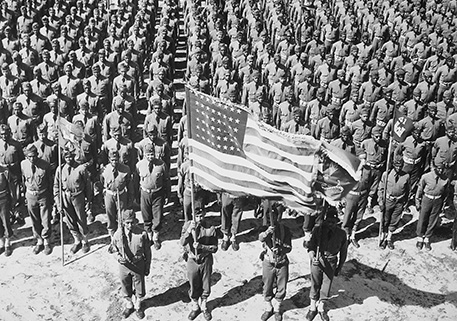
The following is a statement from Randy Reese, DAV Executive Director, Washington Headquarters
Today, DAV is pleased to announce the introduction of the Veterans Burn Pit Exposure Recognition Act of 2019, S. 2950, bipartisan legislation introduced by Senators Dan Sullivan (AK) and Joe Manchin (WV) that would make it easier for veterans to receive health care and benefits for illnesses and diseases caused by exposure to toxins from burn pits.
The legislation would require VA to formally recognize a “concession of exposure” for veterans who have served near burn pits during their military service, covering those who served in Iraq during the first Gulf War and those who served after 9/11 in Afghanistan, Iraq and the Southwest Asia Theater of operations, whenever burn pits were active.
Burn pits have been widely used by U.S. and coalition forces at various locations for decades as a manner of disposing of refuse in deployed areas, including plastics, batteries, fuel and even human waste and remains. Increasingly more veterans who were exposed to burn pits are developing respiratory and lung illnesses, and clinic research and studies are linking exposure to toxins to these conditions.
In most cases, the VA requires veterans to not only prove they were exposed to a toxin as part of their military duties, but also then to prove through medical opinion that that their condition is linked to that specific toxin. However, due to the lack of existing documentation about when and where burn pits were used or the precise location of servicemembers while deployed during these conflicts, it is extremely difficult to prove these claims.
This legislation, crafted from an original DAV concept, would codify a concession of exposure to help ensure that veterans who served near burn pits have less red tape to deal with when, and if, they need to file a related claim for a service-connected disability. The bill would not automatically provide benefits as veterans would still need a medical opinion connecting their exposure to the illness or disease they are suffering from. However, by granting a concession of exposure to veterans known to have been exposed to burn pits during service, VA can eliminate another arduous step for veterans and help them get the lifechanging health care and benefits they need more quickly.
DAV is well aware—and has been for many years—of the adverse health effects of burn pits. Veterans cannot afford to wait any longer while their conditions worsen. We must take action now to formally recognize exposure to burn pits, rather than repeat the mistake of making Vietnam veterans wait decades for recognition of their exposure to Agent Orange.
We would especially like to extend our thanks to Senators Sullivan and Manchin for their support and partnership in developing and introducing this critical legislation and for being committed champions for the nation’s veterans.
DAV urges swift passage of the Veterans Burn Pits Exposure Recognition Act so we can remove unnecessary obstacles preventing veterans from getting the benefits and services they need have earned. Let us learn from the past and end the wait for the men and women who served.






